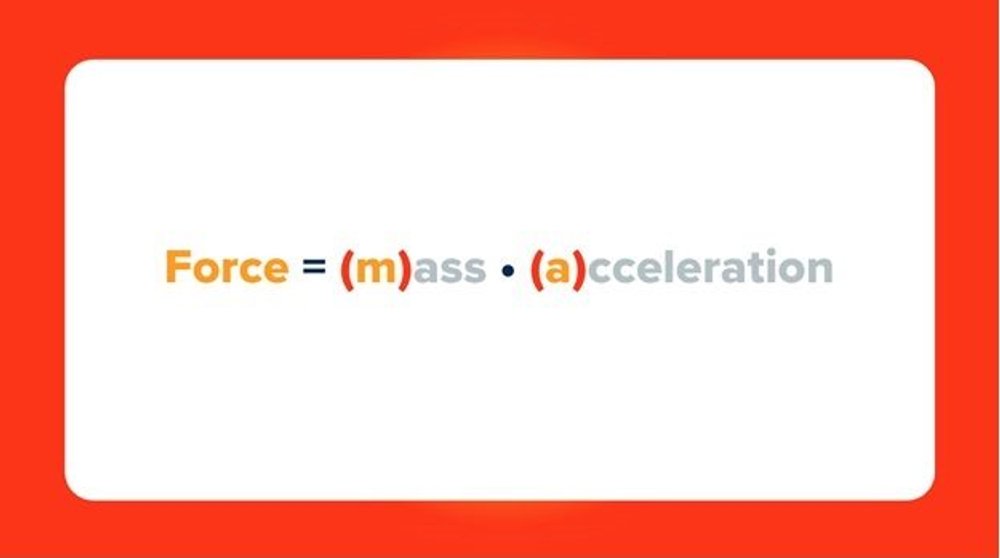‘Trends have lost all meaning’ /
Brands’ fascination with social-media fads has devalued the rigorous practice of trend forecasting, says Reddit's head of global foresight, Matt Klein. Brands should remember some simple laws of physics to get back on track.

Trends once meant meaningful social change: an emerging and defining collective thought, behaviour, value, or attitude. A shift in society. But today, ‘mermaid-core’ is being named a top trend for this summer.
Trends lost their meaning.
When brands joined the conversations on social media en masse, it set off a chain reaction which would ultimately lead us to devalue the rigorous practice of trend forecasting and the original definition of a ‘trend’.
As soon as brands created their own accounts the thought became: ‘If we participate in these discussions, we win culture... and then sales.’
It’s unclear if this notion has even been effectively measured or supported, but it often remains the collective hypothesis.
As a result, brands started obsessing over the ‘trending’ story of the day, hashtag, meme of the moment, or core aesthetic. Watching everyone engage in public conversations across social media, many brands believe emulating our ‘friends’ would unlock cultural resonance.
In the process of chasing cool, brands have lost the purpose of analysing culture. Most of the signals considered ‘trends’ today are really nothing more than frivolous entertainment.
In short, we’ve come to confuse what is ‘trending’ with what is a ‘trend’.
In primary research* when asking 1,500 people globally if they’d heard of 10 ‘trends’ which were the most discussed among marketers online – from Cottagecore and Barbiecore, to Indie Sleaze and Permacrisis — 43% hadn’t heard of a single one.
Meanwhile, among the 57% of people who had heard of one of these top ‘trends’, less than half of them have attempted to participate.
The vast majority of people have not even heard of what marketers are obsessing over.
Further, in a moment of chronic uncertainty (see: the pandemic, war, inequality, climate change, etc.) trends have become our ‘answers’ — comforting explanations of what comes next. And while culture started to feel stagnant (see: nostalgia-mania), trends became our ‘progress’ — comforting change. As a result, the number of published trend reports has roughly tripled since 2016.
Trends are trending. And the trending is seen as trends. It’s a mess. For this reason, we need to break up with trends as we currently know them.
Here are three reasons why:
First, they are exhausting. About 64% of people feel the pace of culture accelerating. We’re seeing trends go meta with anti-trend trends and #corecore – a movement addressing context collapse and the absurdity of life online. It feels impossible to keep up. And the ‘trends’ are inherently fleeting. Ephemerality has a notoriously low ROI, so why should we care about something that will fade?
Second, they are futile. Around 66% of people believe brands try too hard today. Even if a brand successfully jumped on a trend, its mere participation undermines the outcome. As soon as you show up, you may begin to mutate or dilute the ‘trend’. This is why identifying the right opportunities and the strategic ways in are so necessary.
And third, these trends are empty—devoid of meaning. Let’s go back to Physics 101. Sorry. The equation for force is (F)orce = (m)ass x (a)cceleration. Or more simply, force is calculated by the ‘weight’ of something multiplied by its ‘speed’. Why do we care about physics and force? Because culture is made up of forces: the crosswinds, efforts, and influences of ideas and behaviours.
But the problem is, we’re messing up the equation when calculating what to pay attention to.

For acceleration or ‘speed’, we need to recognise that everything is fast. Nearly 75% of people believe algorithms can make anything go viral. In this context, speed is table stakes and we're confusing speed with newness. Ironically, it’s usually the slower-moving shifts that have more value and sustained energy.
As for mass or ‘weight’, everything is big. Again thanks to algorithms, everything has a trillion views. However, size isn’t the metric we should be paying attention to. Consider a balloon and bowling ball. Both are the same size, but very different weights. Remember, it's the weight that we’re after here.
Consider the difference between pretending to be a depressed brand to appear relatable on social media vs. empowering an existing community already addressing the mental health crisis.
In realising how we’ve failed physics, we need to commit to the real equation for force: weight—or meaningfulness—times its speed—or its staying power or momentum.
So what does this all mean for makers and marketers alike?
70% of people would rather brands ‘serve their needs by understanding what they care about’ vs. 30% of people who’d rather brands ‘appear relevant by leaning into the latest trends’.
So how do we insulate ourselves against trend mania and work towards identifying or strategising around modern movements?
Simple.
Go back to the basics.
Physics 101: remembering the true definition of force — does this actually have weight and sustained energy?
Psychology 101: remembering the human — does this actually mean something to a real person, not an algorithm?
Business 101: remembering ROI — does this actually move a needle and is a sound investment of time, energy, and resources?
If there’s no resounding ‘yes’ to the above, put it aside and keep tabs on it. Not doing so is a disservice to our brands, ourselves, and our industry.
There’s an incredible opportunity at our feet. The challenges we face personally and collectively are significant, but not insurmountable. The ultimate question is: What is the role of your brand in shaping our future?
*Source: “Modern Movements > Trends” Reddit & Attest, Jan 2023, n=1,500 (US, UK, FR & AUS)
Want more of the same? /
We don’t just write about best-in-class campaigns, interviews and trends. Our Members also receive access to briefings, online training, webinars, live events and much more.







